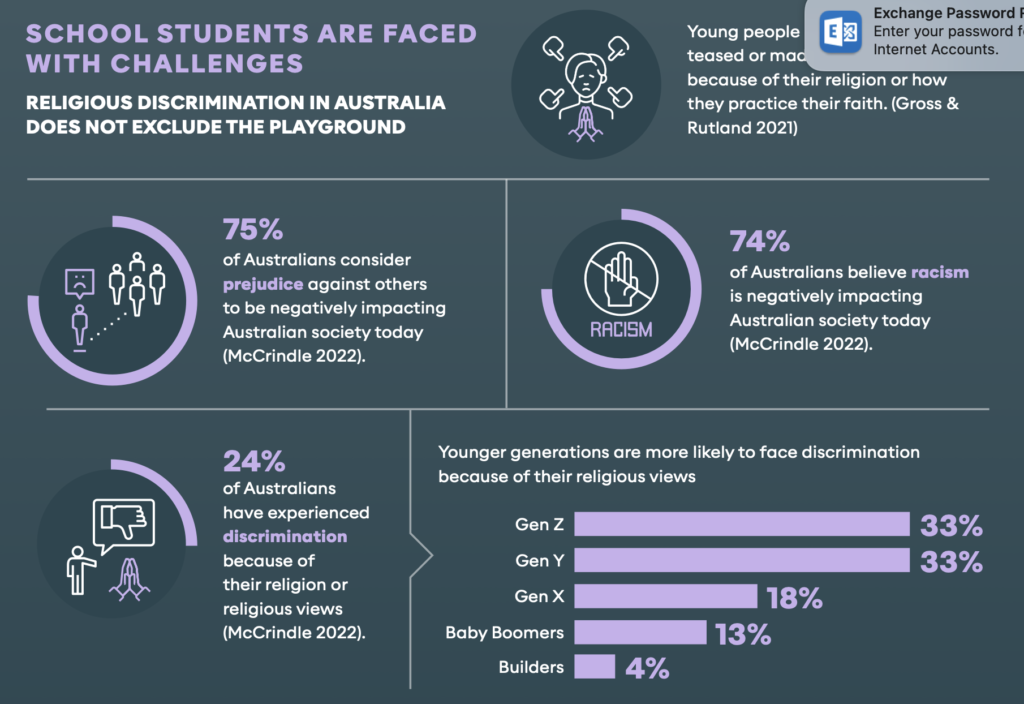Jewish, Muslim, Hindu and believing Christian students are subject to bullying at school and the problems are getting worse according to researchers Professor Zehavit Gross and Professor Emerita Suzanne Rutland. They found that students often downplay the bullying, believing attempting to report it will worsen it.
This is one of the significant findings outlined in their book “Special Religious Education in Australia and its Value to Contemporary Society”, which was launched last night at Alphacrucis University College.
Their four-year study found that countering religious bullying and vilification in schools was a “major constituent “of Special Religious Education (SRE) – RI in Queensland) – the volunteer-led teaching of religions in schools. The other outcomes included values education, reinforcing religious identity, contributing to spirituality, health and wellbeing, and education for multiculturalism.
“I want to send a message of congratulations on the launch of this important book,” NSW Premier Dominic Perrottet, told the launch via video. “As a society and community, we talk a lot about diversity. And there is no doubt that Australia is one of the most successful multicultural and pluralistic societies on the planet. But we tend to get shy when it comes to discussing faith or religion. Especially the Judeo-Christian values that underpin Australian society…”
“This book adds to the evidence base showing that in many ways religious education has a beneficial impact on students.”

One in four Australians today (26%) report having experienced discrimination because of their religion or religious views according to a McCrindle survey earlier this year, run to complement the book.
“A key part of young people’s development is a growing awareness of their own beliefs, the beliefs connected to their cultural background and the beliefs of those around them,” the report found. “Identity capital,” the awareness of forms you, if well taught, is a base to treat others well. This means that SRE/Ri provides benefits to the broader society.
The report found a significant overlap between SRE/RI and the values component in the national curriculum. “Interviewees from the six faith groups agree values such as loving kindness, care and compassion, righteousness and responsibility are foundational to SRE/RI teachings. Interviewees also stressed that being a good citizen and understanding that they are part of broader humanity was very important. Within this framework, having a belief in a higher being, a key element in SRE/ RI, can contribute significantly to values education.”
Gross and Rutland’s research spans over a decade of exploring SRE/RI (known colloquially as scripture classes) in government schools in Sydney and Melbourne. Their research began looking into Jewish SRE/RI, then expanded in 2019-2020 to a broader study of SRE/RI classes in six major faith groups: Christianity, Islam, Buddhism, Hinduism, Judaism and Baha’i.
Professor Zehavit Gross holds a chair in the School of Education, Bar Ilan University, Israel. Professor Emerita Suzanne Rutland’s chair was in the Department of Hebrew, Biblical & Jewish Studies, University of Sydney.
At last night’s launch, the two researchers were given special awards by the NSW Government for their contribution to a multicultural and respectful society.

